July 25 stands as one of history’s most eventful days, witnessing the rise and fall of empires, groundbreaking discoveries, and moments that shaped our modern world across centuries of human achievement.
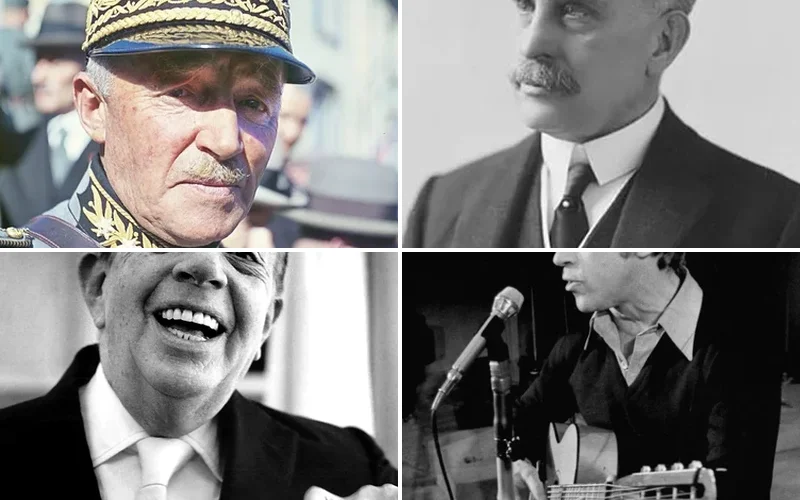
Politics and Government Events on July 25
1943 – Benito Mussolini Forced from Power
World War II reached a pivotal moment when the Italian King, encouraged by the Grand Council of Fascism, forced Benito Mussolini out of office. Pietro Badoglio immediately replaced the deposed dictator as Italy’s leader.
This dramatic political shift marked the beginning of Italy’s eventual exit from the Axis powers. The coup demonstrated how wartime pressures could topple even the most entrenched fascist regimes.
1961 – Kennedy Declares Berlin NATO Priority
President John F. Kennedy delivered a forceful speech emphasizing that any attack on Berlin would constitute an attack on NATO itself. His declaration strengthened Western resolve during the height of Cold War tensions.
The speech came just weeks before East Germany began construction of the Berlin Wall. Kennedy’s words reassured allies while sending a clear message to Soviet leadership about American commitment to West Berlin.
1917 – Canada Introduces First Income Tax
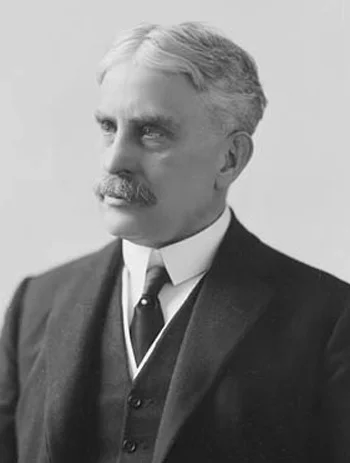
Sir Robert Borden introduced Canada’s first income tax as a “temporary” wartime measure, with rates ranging from 4% to 25%. The legislation promised to fund the massive costs of World War I participation.
Canadian taxpayers accepted the measure as their patriotic duty during wartime. The “temporary” tax would become a permanent fixture of Canadian fiscal policy, outlasting the war by decades.
1958 – African Regroupment Party Founded
The African Regroupment Party held its inaugural congress in Cotonou, marking a significant moment in West African political organization. The party aimed to unite various African independence movements under a common banner.
This political gathering represented growing Pan-African solidarity during the decolonization era. The party’s formation helped coordinate resistance against continued colonial rule across the continent.
2007 – India’s First Female President Sworn In
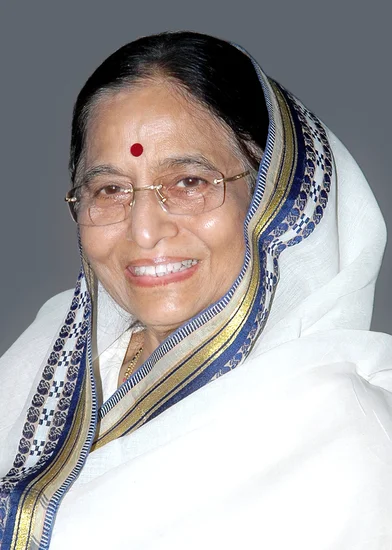
Pratibha Patil took the oath of office as India’s first female president, breaking a significant gender barrier in the world’s largest democracy. Her inauguration marked a historic milestone for women’s representation in Indian politics.
The ceremony attracted international attention and celebrated India’s democratic progress. Patil’s presidency inspired countless young Indian women to pursue careers in public service and politics.
1957 – Tunisia Becomes Republic
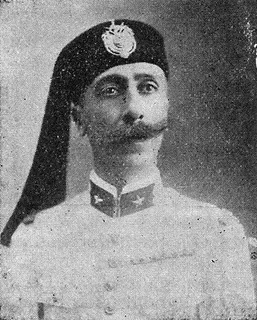
Tunisia officially transitioned from monarchy to republic when President Habib Bourguiba replaced King Muhammad VIII al-Amin. This peaceful transfer of power consolidated Tunisia’s independence from French colonial rule.
The political transformation established Tunisia as a modern Arab republic. Bourguiba’s leadership would shape Tunisian society for decades, promoting education, women’s rights, and secular governance.
Military and Naval History on July 25
1915 – First British Pilot Earns Victoria Cross

RFC Captain Lanoe Hawker became the first British pursuit aviator to receive the Victoria Cross for extraordinary aerial combat valor. His heroic actions established new standards for fighter pilot courage during World War I.
Hawker’s aerial victories demonstrated the growing importance of aviation in modern warfare. His recognition helped elevate the status of military pilots and inspired future generations of combat aviators.
1942 – Swiss Army Ordered to Resist German Invasion

General Henri Guisan issued orders for the Swiss Army to resist any German invasion and declared surrender illegal under Swiss military law. This decisive command strengthened Swiss neutrality during World War II’s darkest period.
The order reflected Switzerland’s determination to maintain independence despite being surrounded by Axis powers. Guisan’s leadership helped preserve Swiss sovereignty throughout the war.
1944 – Operation Spring Devastates Canadian Forces
Operation Spring became one of the bloodiest days for the First Canadian Army during World War II. The failed offensive near Caen resulted in massive casualties among Canadian troops fighting to break German defensive lines.
The operation’s failure highlighted the challenges of breaking through well-fortified German positions. Canadian forces paid a terrible price while learning valuable lessons about coordinated armored warfare.
1942 – Norwegian Manifesto Calls for Resistance
Norwegian leaders issued a manifesto calling for nonviolent resistance against the German occupation forces. The document provided moral leadership for the Norwegian resistance movement during the darkest period of occupation.
The manifesto inspired countless acts of passive resistance throughout occupied Norway. Its principles helped maintain Norwegian national identity and hope during years of Nazi rule.
Science and Discovery Milestones on July 25
1976 – Viking 1 Captures Famous Face on Mars Photo
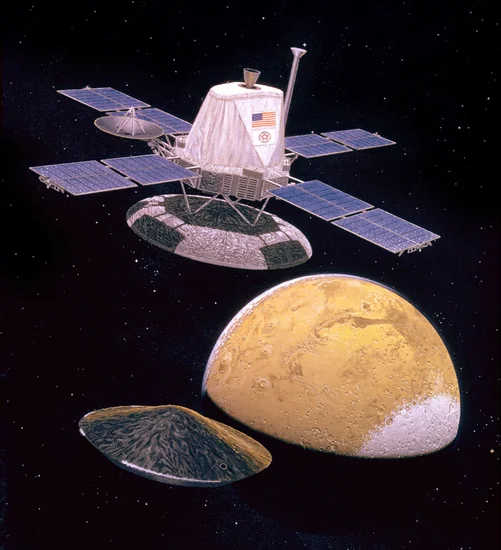
NASA’s Viking 1 spacecraft captured the famous “Face on Mars” photograph, sparking decades of speculation about possible extraterrestrial life. The image showed what appeared to be a humanoid face carved into the Martian surface.
The photograph captured public imagination and fueled countless theories about ancient Martian civilizations. Later high-resolution images revealed the “face” to be a natural rock formation shaped by erosion and lighting effects.
1978 – First IVF Baby Born
Louise Joy Brown became the first human born through in vitro fertilization, revolutionizing reproductive medicine and offering hope to millions of infertile couples worldwide. Her birth marked the beginning of modern assisted reproductive technology.
The successful IVF procedure opened new possibilities for treating infertility and understanding human reproduction. Brown’s birth launched a medical revolution that has since helped millions of families have children.
1925 – Soviet Telegraph Agency Established
The Telegraph Agency of the Soviet Union (TASS) was established as the official news agency of the USSR. TASS became the primary source of information for Soviet citizens and international observers of Soviet affairs.
The agency played a crucial role in disseminating Soviet propaganda and controlling information flow within the communist state. TASS correspondents reported from around the world, shaping global perceptions of Soviet policies and achievements.
1946 – First Underwater Nuclear Test Conducted

The Crossroads Baker device became the first underwater nuclear weapon test, demonstrating the devastating potential of atomic weapons against naval targets. The test took place at Bikini Atoll in the Pacific Ocean.
The underwater detonation created a massive column of radioactive water and steam, contaminating numerous test vessels. The experiment provided valuable data about nuclear weapons’ effects on naval warfare and marine environments.
1969 – Mars 5 Space Probe Launched
The Soviet Union launched the Mars 5 space probe as part of their ambitious planetary exploration program. The mission aimed to study the Martian atmosphere and surface from orbit.
Mars 5 successfully reached the Red Planet and transmitted valuable scientific data back to Earth. The probe’s findings contributed to humanity’s growing understanding of planetary science and space exploration capabilities.
Cultural and Arts Events on July 25
1965 – Bob Dylan Goes Electric at Newport

Bob Dylan shocked the folk music world by performing with electric instruments at the Newport Folk Festival. His controversial decision signaled a major transformation in both folk and rock music genres.
The performance divided audiences and critics, with some booing Dylan’s departure from traditional acoustic folk music. This pivotal moment helped create the folk-rock genre and influenced countless musicians to experiment with new sounds.
1908 – Ajinomoto Founded, MSG Discovered
Kikunae Ikeda of Tokyo Imperial University discovered monosodium glutamate (MSG) as a key ingredient in kombu soup stock and founded Ajinomoto to manufacture it. His discovery revolutionized food science and flavor enhancement.
The company’s establishment marked the beginning of industrial umami production and modern food chemistry. Ajinomoto’s innovations would eventually transform global cuisine and food processing techniques.
1980 – Vladimir Vysotsky Dies

Vladimir Vysotsky, the legendary Russian singer-songwriter, guitarist, and actor, passed away at age 42. His death marked the end of an era for Soviet counterculture and artistic expression.
Vysotsky’s songs captured the struggles and dreams of ordinary Soviet citizens. His unofficial status as a folk hero made his death a moment of national mourning throughout the Soviet Union.
1986 – Vincente Minnelli Dies

Renowned film director Vincente Minnelli passed away, leaving behind a legacy of classic Hollywood musicals and dramas. His innovative cinematography and direction helped define the golden age of American cinema.
Minnelli’s films, including “Meet Me in St. Louis” and “An American in Paris,” set new standards for musical filmmaking. His artistic vision influenced generations of directors and cinematographers.
Religious and Social Events on July 25
1983 – Black July Massacre in Sri Lanka

Thirty-seven Tamil political prisoners were massacred by fellow Sinhalese prisoners at Welikada high security prison in Colombo. This tragic event occurred during the Black July riots that devastated Sri Lankan Tamil communities.
The massacre intensified ethnic tensions and contributed to the escalation of Sri Lanka’s civil war. The violence highlighted the deep-rooted ethnic divisions that would plague the country for decades.
1993 – Saint James Church Massacre
The Saint James Church massacre occurred in Kenilworth, Cape Town, South Africa, during the final years of apartheid. The attack highlighted the ongoing violence that plagued South Africa’s transition to democracy.
The tragedy demonstrated how political tensions could erupt into religious violence during South Africa’s turbulent transition period. The massacre became a symbol of the challenges facing the country’s reconciliation process.
1971 – Sohagpur Massacre
The Pakistan Army perpetrated the Sohagpur massacre during the Bangladesh Liberation War. This atrocity was part of the systematic campaign of violence against Bengali civilians during the conflict.
The massacre represented one of many war crimes committed during the brutal nine-month war. These events contributed to international pressure for intervention and eventual Bangladeshi independence.
1934 – Austrian Chancellor Assassinated
Nazi conspirators assassinated Austrian Chancellor Engelbert Dollfuss in a failed coup attempt. The assassination demonstrated Nazi Germany’s growing influence and aggression in Central Europe.
Dollfuss’s death marked a crucial moment in Austria’s struggle to maintain independence from Nazi Germany. The failed coup temporarily preserved Austrian sovereignty but foreshadowed future German annexation.
Business and Economic Events on July 25
1979 – Israel Begins Sinai Withdrawal

Israel began its withdrawal from the Sinai Peninsula in accordance with the Egypt-Israel peace treaty. This historic move demonstrated how economic incentives could facilitate peaceful resolution of territorial disputes.
The withdrawal involved dismantling Israeli settlements and military installations built during years of occupation. The process required significant financial compensation and careful diplomatic coordination between former enemies.
1995 – Paris Metro Bombing

A gas bottle exploded in Saint Michel station on the Paris RER line B, killing eight people and wounding eighty others. The terrorist attack disrupted the French capital’s transportation system and economy.
The bombing prompted increased security measures throughout Paris’s public transportation network. The attack highlighted the vulnerability of urban infrastructure to terrorist threats in modern European cities.
2000 – Concorde Crash Near Paris
Air France Flight 4590 crashed shortly after taking off from Charles de Gaulle Airport, killing 113 people and effectively ending the supersonic passenger jet era. The disaster devastated confidence in luxury air travel.
The crash marked the beginning of the end for commercial supersonic aviation. Economic pressures and safety concerns following the accident led to Concorde’s permanent retirement from service.
Transportation and Infrastructure on July 25
1909 – First Cross-Channel Flight
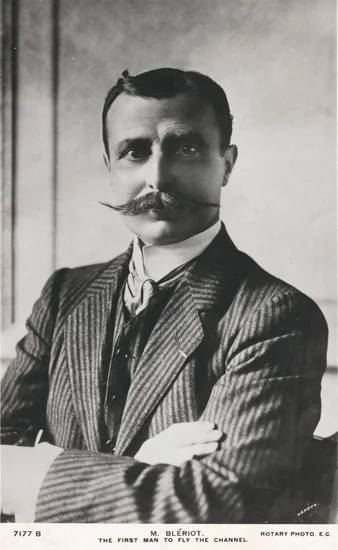
Louis Blériot achieved the first heavier-than-air flight across the English Channel, traveling from Calais to Dover in just 37 minutes. His historic flight demonstrated aviation’s potential for international transportation.
The successful crossing proved that aircraft could overcome natural barriers that had separated nations for centuries. Blériot’s achievement sparked global enthusiasm for aviation and accelerated aircraft development worldwide.
1956 – SS Andrea Doria Collision
The Italian ocean liner SS Andrea Doria collided with the MS Stockholm in heavy fog forty-five miles south of Nantucket Island. The collision killed 51 people and resulted in one of the most famous maritime disasters of the modern era.
The disaster highlighted the dangers of ocean travel despite advanced technology and safety measures. The sinking marked the end of the golden age of transatlantic passenger shipping.
1925 – TASS News Agency Established
The Telegraph Agency of the Soviet Union (TASS) was founded to manage information distribution throughout the vast Soviet territory. The agency became crucial for coordinating communication across the world’s largest country.
TASS developed an extensive network of correspondents and communication infrastructure spanning eleven time zones. The agency’s establishment reflected the Soviet Union’s commitment to centralized information control and distribution.
Sports and Recreation on July 25
1997 – Ben Hogan Dies
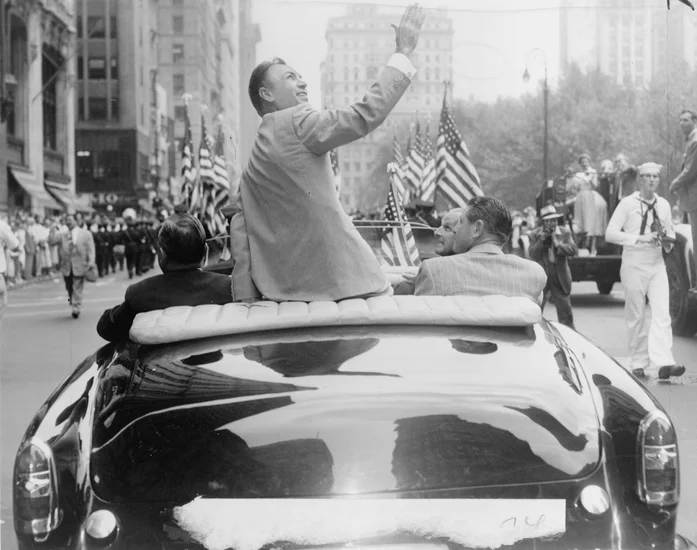
Legendary American golfer Ben Hogan passed away, ending the career of one of golf’s greatest champions. His death marked the end of an era for professional golf and athletic excellence.
Hogan’s perfectionist approach to golf technique influenced generations of players and instructors. His comeback from a near-fatal car accident became one of sports’ most inspiring stories of determination and resilience.
1984 – Big Mama Thornton Dies
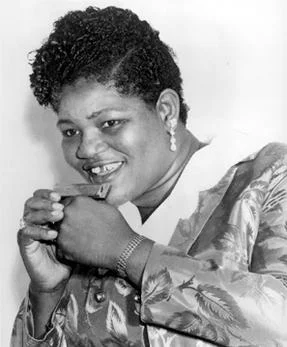
Blues legend Big Mama Thornton passed away, leaving behind a legacy of powerful performances and influential recordings. Her death marked the end of an era for American blues and rhythm music.
Thornton’s original recording of “Hound Dog” predated Elvis Presley’s famous version by several years. Her powerful voice and stage presence helped establish the template for modern blues performance.
1995 – Charlie Rich Dies

Country music star Charlie Rich passed away, ending the career of the “Silver Fox” of country music. His death represented a significant loss for American popular music and country music specifically.
Rich’s crossover success helped bridge the gap between country and popular music genres. His sophisticated musical arrangements and smooth vocal style influenced countless country and pop performers.
Notable Births on July 25
1920 – Rosalind Franklin Born

English biophysicist and chemist Rosalind Franklin was born, destined to make crucial contributions to understanding DNA structure. Her X-ray crystallography work provided essential evidence for the double helix model.
Franklin’s meticulous research methods and scientific rigor advanced the field of molecular biology. Her work laid the foundation for modern genetics and molecular medicine, though recognition came largely after her early death.
1922 – John B. Goodenough Born

American materials scientist John B. Goodenough was born, future Nobel Prize laureate whose work would revolutionize energy storage technology. His research on lithium-ion batteries transformed portable electronics and electric vehicles.
Goodenough’s innovations enabled the development of smartphones, laptops, and electric cars. His scientific contributions helped create the modern wireless communication age and sustainable transportation solutions.
1905 – Elias Canetti Born

Bulgarian-Swiss novelist and Nobel Prize winner Elias Canetti was born, destined to become one of the 20th century’s most important writers. His literary works explored themes of power, mass psychology, and human nature.
Canetti’s masterpiece “Crowds and Power” became a seminal work in social psychology and political theory. His insights into mob behavior and authoritarianism proved prophetic for understanding modern political movements.
1946 – Rita Marley Born
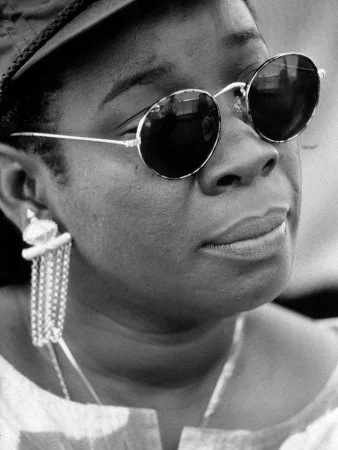
Cuban-Jamaican singer Rita Marley was born, future wife of Bob Marley and important figure in reggae music history. Her musical career and advocacy work helped spread Jamaican culture worldwide.
Rita Marley’s contributions to reggae music and Rastafarian culture extended far beyond her famous marriage. Her solo career and cultural preservation efforts helped maintain Bob Marley’s legacy and promote Jamaican music globally.
1982 – Brad Renfro Born

American actor Brad Renfro was born, destined for a brief but impactful career in Hollywood films. His natural acting ability and screen presence made him one of the most promising young actors of his generation.
Renfro’s performances in films like “The Client” and “Apt Pupil” demonstrated remarkable range for such a young performer. His tragic early death cut short a career that showed tremendous artistic potential.
Notable Deaths on July 25
1934 – Engelbert Dollfuss Dies
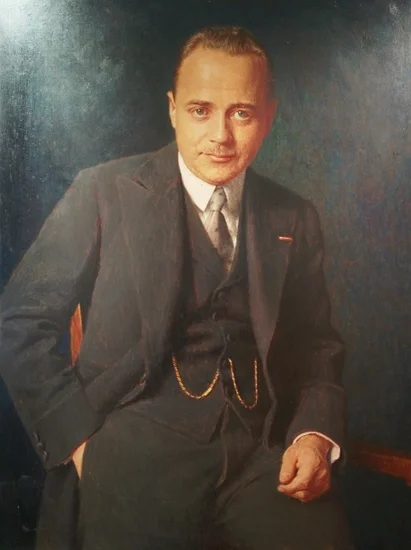
Austrian Chancellor Engelbert Dollfuss was assassinated during a failed Nazi coup attempt. His death marked a crucial moment in Austria’s struggle against Nazi German influence and aggression.
Dollfuss had attempted to maintain Austrian independence while balancing competing political pressures from Nazi Germany and fascist Italy. His assassination demonstrated the lengths to which Nazi agents would go to destabilize neighboring governments.
1973 – Louis St. Laurent Dies
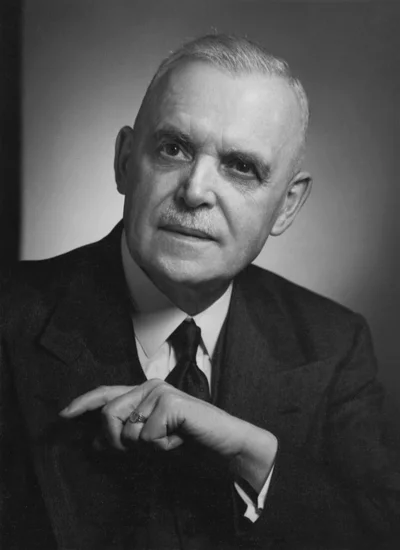
Canadian Prime Minister Louis St. Laurent passed away, ending the life of one of Canada’s most respected political leaders. His death marked the end of an era for Canadian Liberal politics and national development.
St. Laurent’s tenure as Prime Minister saw Canada emerge as a major middle power in international affairs. His leadership during the Cold War’s early years helped establish Canada’s independent foreign policy and NATO membership.
2009 – Harry Patch Dies

Harry Patch, the last surviving British soldier from World War I, passed away at age 111. His death marked the end of living memory of the Great War and its devastating impact on an entire generation.
Patch’s longevity allowed him to witness nearly the entire span of modern history. His later years were spent as a peace advocate, sharing his experiences to educate new generations about war’s true costs.
1973 – Amy Jacques Garvey Dies

Jamaican-American journalist and activist Amy Jacques Garvey passed away, ending a lifetime of advocacy for Pan-African causes and civil rights. Her death marked the loss of a pioneering voice for African diaspora unity.
Garvey’s work alongside her husband Marcus Garvey helped establish the foundation for modern Pan-African political movements. Her writings and activism inspired generations of civil rights leaders and African independence movements.
Holidays and Observances on July 25
Guanacaste Day (Costa Rica)
Costa Rica celebrates Guanacaste Day, commemorating the annexation of the Guanacaste Province from Nicaragua in 1824. The holiday reflects Costa Rican national pride and territorial sovereignty.
The celebration features traditional folk dancing, music, and regional cuisine that showcase Guanacaste’s unique cultural heritage. Communities throughout the province organize festivals that attract visitors from across Central America.
National Day of Galicia (Spain)
Galicia observes its National Day, celebrating the region’s distinct culture, language, and identity within Spain. The holiday promotes Galician autonomy and cultural preservation efforts.
The celebration includes traditional Celtic music, Galician language events, and regional food festivals. The observance strengthens Galician identity while maintaining connections to broader Spanish and European culture.
Puerto Rico Constitution Day
Puerto Rico commemorates Constitution Day, marking the establishment of the Commonwealth of Puerto Rico and its constitution. The holiday reflects Puerto Rican political development and relationship with the United States.
The observance includes governmental ceremonies, educational programs, and cultural events that celebrate Puerto Rican civic achievements. Schools and community organizations use the day to teach about Puerto Rican political history and constitutional rights.
